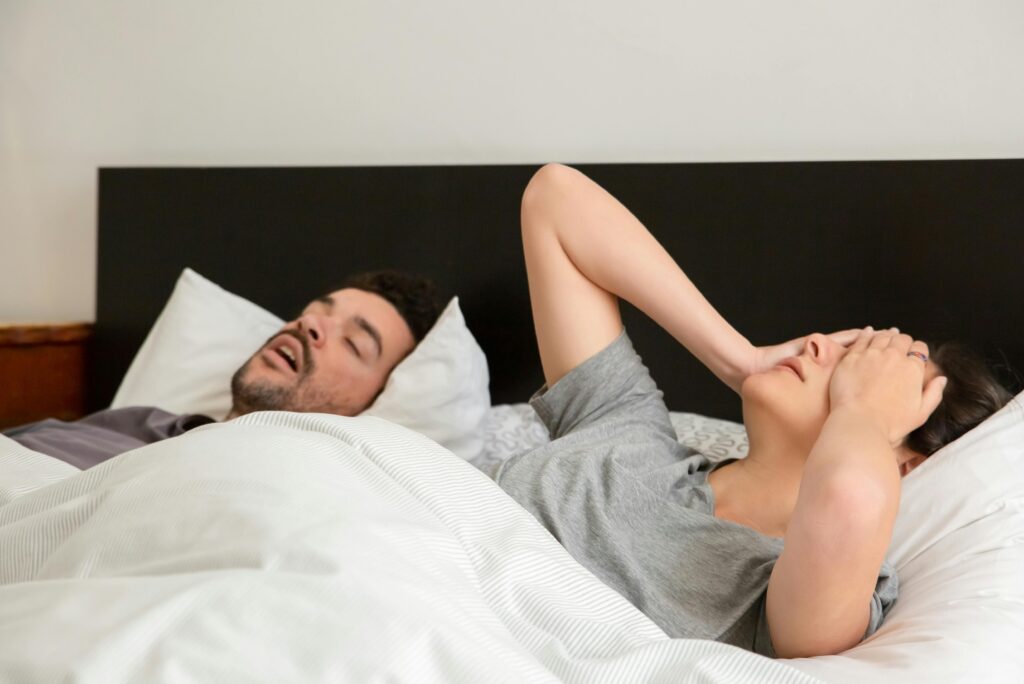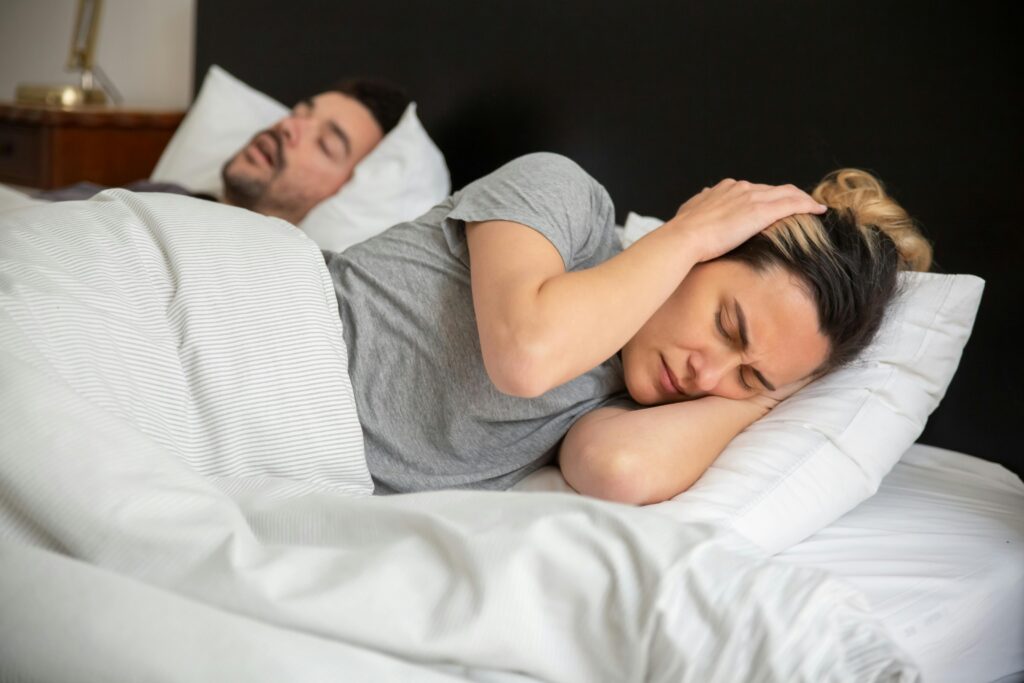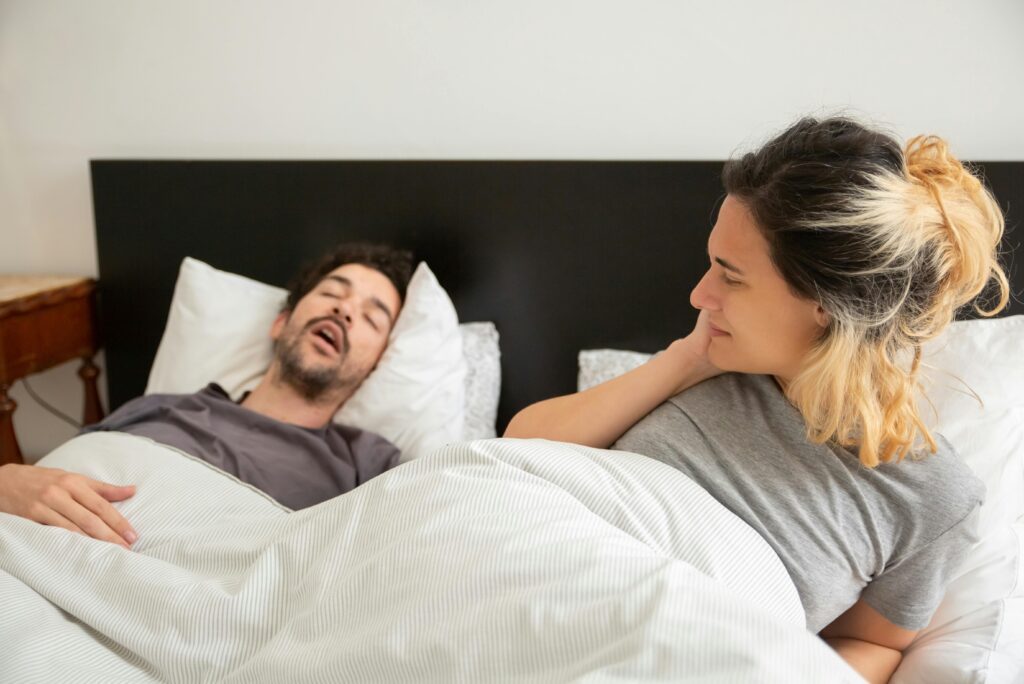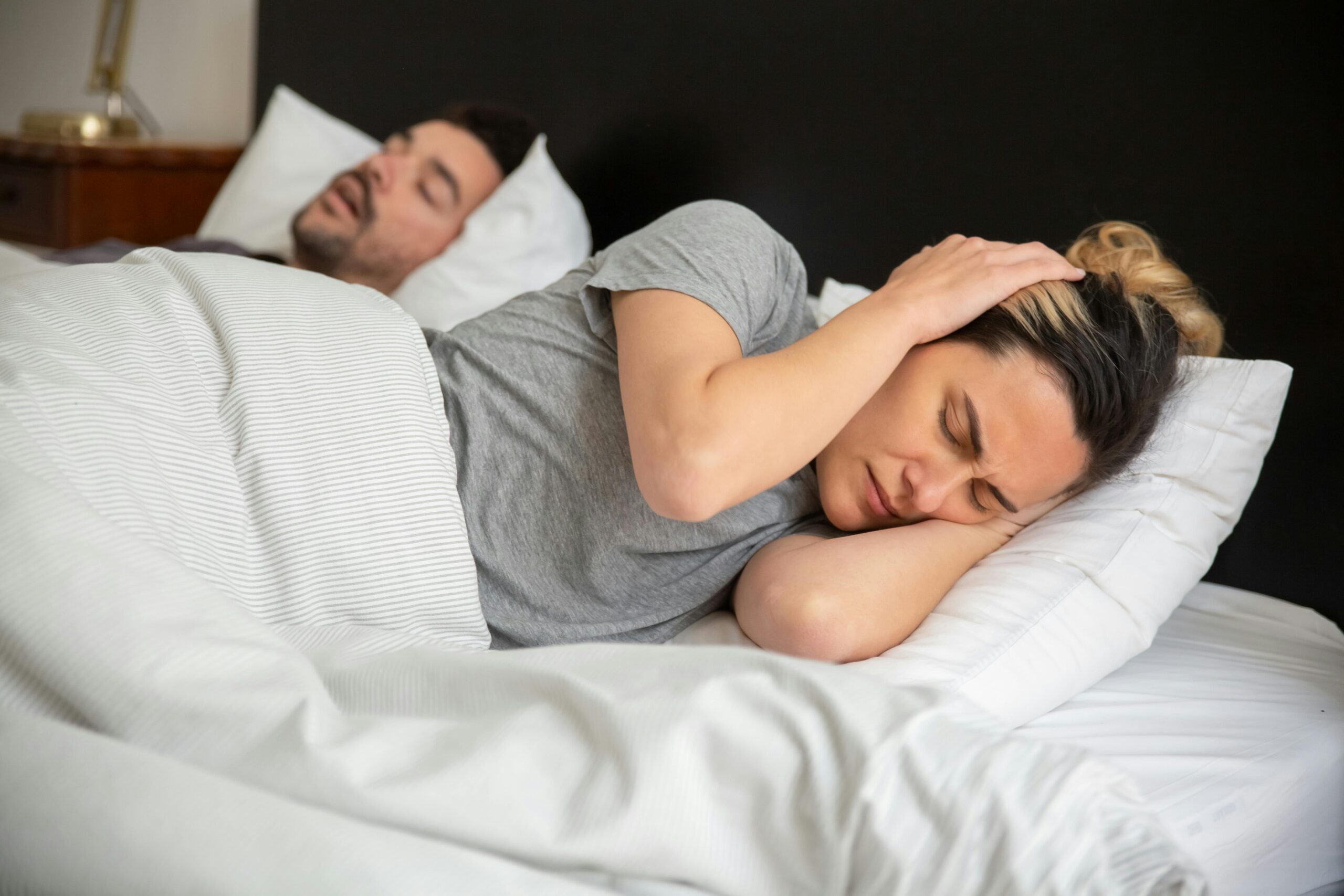Meta Description: Sleep apnea doesn’t just disrupt your rest—it impacts your partner too. Learn how this condition affects couples and ways to improve sleep together.
Introduction
Sleep apnea is often seen as an individual struggle, but its effects ripple through relationships. Loud snoring, frequent awakenings, and daytime fatigue don’t just harm the person with sleep apnea—they also disrupt their partner’s sleep and emotional well-being. If you or your loved one has sleep apnea, understanding its impact on your relationship and how to manage it can lead to better nights—and happier days—together.

How Sleep Apnea Disrupts Both Partners’ Sleep
Sleep apnea doesn’t just steal rest from the person diagnosed; it also affects their partner in multiple ways:
1. Loud Snoring and Frequent Wake-Ups
- The most obvious symptom, chronic snoring, can keep partners awake or constantly rouse them from deep sleep.
- Gasping or choking sounds from apnea episodes can be alarming, causing further sleep interruptions.
2. Sleep Deprivation for Both
- Partners often report poor sleep quality due to noise or worry about their loved one’s breathing pauses.
- Over time, this leads to daytime fatigue, irritability, and tension in the relationship.
3. Separate Sleeping Arrangements
- Many couples resort to sleeping in different rooms, which can create emotional distance and intimacy issues.

The Emotional Toll on Relationships
Beyond lost sleep, untreated sleep apnea strains relationships in deeper ways:
✔ Increased Irritability – Sleep deprivation makes both partners more prone to arguments.
✔ Reduced Intimacy – Fatigue and low energy can decrease physical and emotional closeness.
✔ Resentment Build-Up – The partner without apnea may feel neglected or frustrated by their loved one’s exhaustion.
✔ Health Consequences for Both – Poor sleep weakens immune function and increases stress levels for both individuals.
How CPAP Therapy Can Help Couples
The good news? Treating sleep apnea can restore rest—and harmony—to your relationship.
1. Quieter Nights
- CPAP machines eliminate snoring by keeping airways open, allowing both partners to sleep undisturbed.
2. Better Sleep Quality for Both
- When apnea episodes stop, the affected person sleeps deeper, reducing disruptive movements and noises.
- Partners often report immediate improvements in their own sleep once CPAP therapy begins.
3. Reconnecting Emotionally & Physically
- With more energy, couples often rediscover intimacy and shared activities.
- No more separate bedrooms—sleeping together again strengthens emotional bonds.

Tips for Couples Managing Sleep Apnea
If sleep apnea is affecting your relationship, these strategies can help:
✅ Encourage Treatment Compliance – Support your partner in using their CPAP nightly for best results.
✅ Use White Noise or Earplugs – If adjusting to CPAP sounds, background noise can help.
✅ Prioritize Sleep Hygiene Together – Maintain a regular sleep schedule and limit caffeine/alcohol before bed.
✅ Communicate Openly – Discuss frustrations without blame and celebrate small improvements.
✅ Consider Couples Counseling – If sleep issues create ongoing tension, therapy can help rebuild connection.
Frequently Asked Questions (FAQ)
1. Can my partner’s sleep apnea affect my health?
Yes! Secondhand sleep deprivation from a partner’s apnea can lead to fatigue, mood swings, and even weakened immunity over time.
2. Will CPAP therapy really stop snoring completely?
For most people, yes—CPAP keeps airways open, eliminating snoring when used consistently.
3. What if my partner refuses to get tested for sleep apnea?
Gently share how their symptoms affect you and suggest a home sleep test as an easy first step.
4. How long until we both notice improvements?
Many couples report better sleep within days of starting CPAP, with mood and energy improving in weeks.
Final Thoughts
Sleep apnea doesn’t have to come between you and your partner. With proper treatment, patience, and teamwork, couples can reclaim restful nights and a stronger relationship. If you suspect sleep apnea, encourage your partner to see a sleep specialist—it could save both of your sleep and your connection.
Ready to take the next step? Find a sleep clinic near you and start your journey to better sleep together.
Sources:
